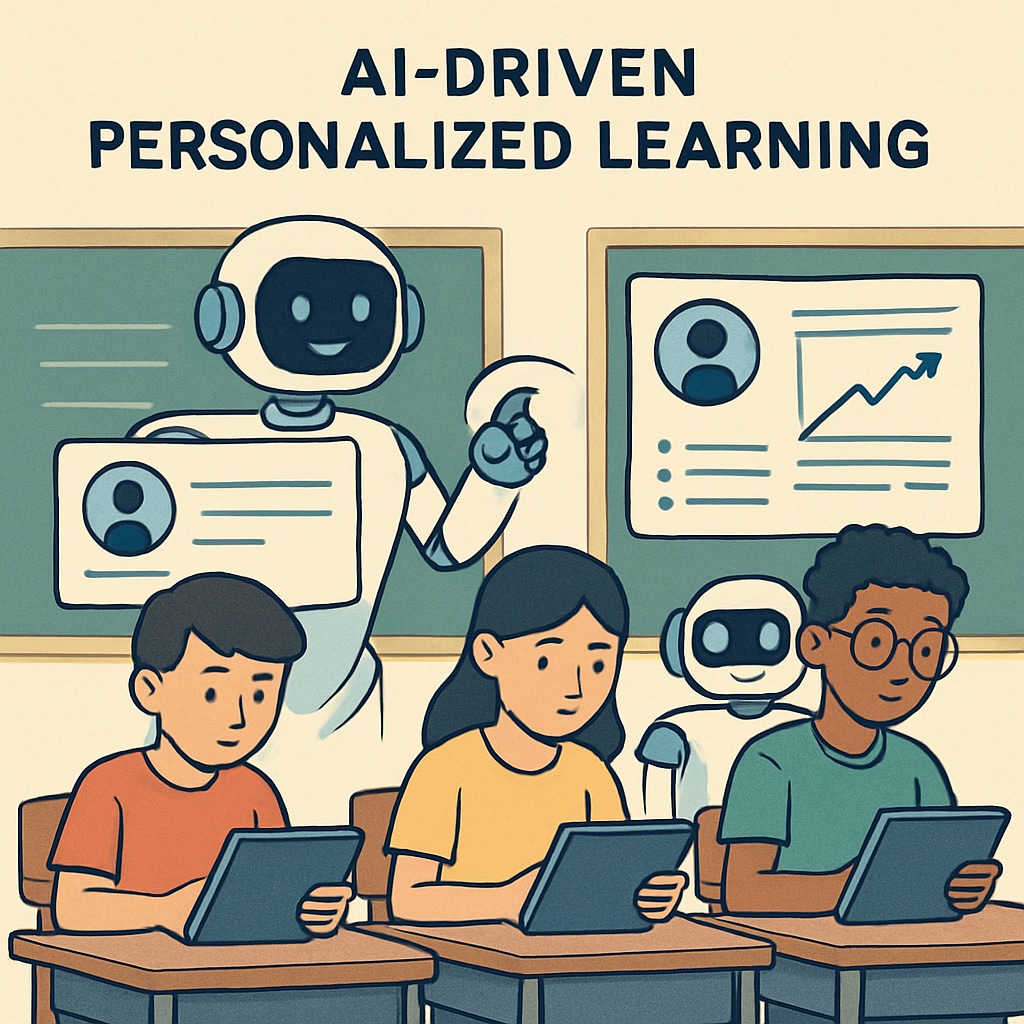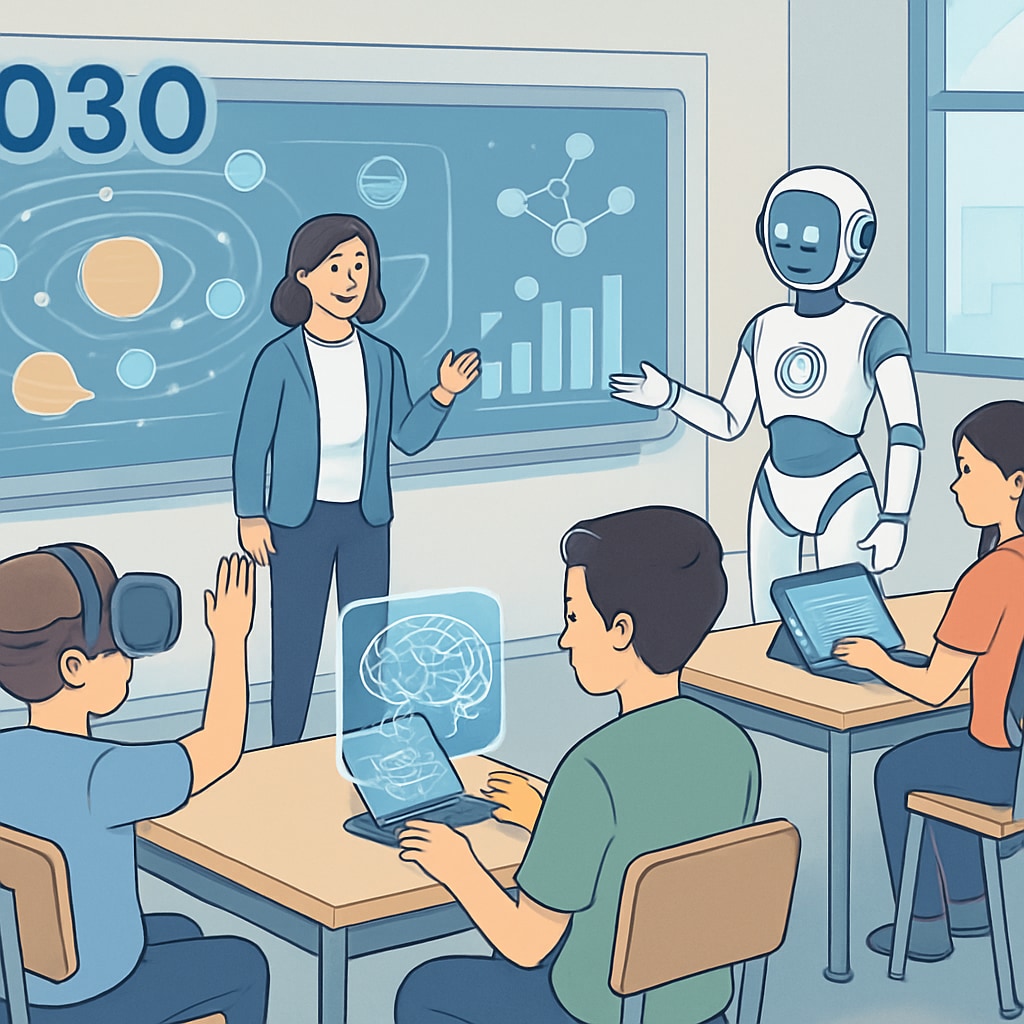Artificial intelligence education, education trends, 2030 education future are reshaping the K12 learning experience, introducing innovations that promise to redefine traditional teaching methods. From tailored learning paths to automated assessments, AI is driving a profound transformation in how students learn, teachers teach, and systems operate. This article explores the trajectory of AI in education and its implications for classrooms worldwide as we approach 2030.
How AI is Transforming K12 Classrooms Today
AI is already making significant strides in K12 education, addressing key challenges such as individual learning needs, teacher workload, and data-driven decision-making. For example, adaptive learning platforms like Khan Academy use AI algorithms to customize lessons based on the student’s pace and comprehension. Teachers are also leveraging AI to automate grading, freeing up time for interactive and creative teaching methods.

In addition, AI-powered tools are transforming special education, providing tailored support for students with disabilities. These innovations are fostering inclusivity and ensuring all learners receive equal opportunities to thrive in academic environments.
The Future of AI in Education: Trends Leading to 2030
Looking ahead, artificial intelligence is poised to play an even larger role in reshaping K12 education. By 2030, the integration of AI technologies into classrooms will likely expand in the following ways:
- Hyper-Personalized Learning: AI will enable educators to create ultra-specific learning plans tailored to each student’s strengths, weaknesses, and interests.
- Predictive Analytics: Schools will use AI to forecast students’ academic outcomes, allowing early interventions for those at risk of falling behind.
- Virtual Reality and AI Collaboration: Immersive technologies will merge with AI to create experiential learning environments, making subjects like history or science more engaging.
Moreover, the rise of AI-powered teaching assistants will help educators manage larger class sizes more effectively, ensuring quality education is not compromised by resource constraints.

Challenges and Ethical Considerations in AI-Driven Education
While the benefits of AI in education are clear, its adoption comes with challenges. Privacy concerns around student data, the risk of over-reliance on technology, and ensuring equitable access to AI tools are pressing issues. For instance, as described by Britannica, AI systems require substantial amounts of data, raising questions about how this data is stored and used.
Additionally, educators must balance AI-driven learning with traditional teaching methods to ensure that critical human skills such as empathy and collaboration are not overlooked in favor of automation.
Implications for Students, Teachers, and Systems
By 2030, the impact of AI on K12 education will be far-reaching:
- Students: AI will empower students with tailored learning experiences, fostering deeper engagement and higher retention rates.
- Teachers: AI will act as a co-teacher, assisting with administrative tasks, lesson planning, and providing real-time feedback on student performance.
- Systems: Schools will adopt AI-driven solutions for resource management, predictive planning, and improving overall efficiency.
As a result, education systems will become more adaptable, inclusive, and future-ready, ensuring that every student receives the tools they need to succeed in an increasingly digital world.
In conclusion, artificial intelligence education, education trends, 2030 education future promise to redefine the K12 landscape, unlocking unprecedented opportunities for personalized, efficient, and inclusive learning. By embracing AI responsibly, educators and policymakers can ensure that technology becomes a catalyst for positive change in classrooms worldwide.


